The Independent's journalism is supported by our readers. When you purchase through links on our site, we may earn commission.
Projectile vomiting and ayahuasca ceremonies – Bruce Parry on how ‘Tribe’ has encouraged him to travel closer to home
The presenter and activist tells Emma Henderson how visits to remote tribes in Colombia, Angola and Indonesia have shaped his views of travel

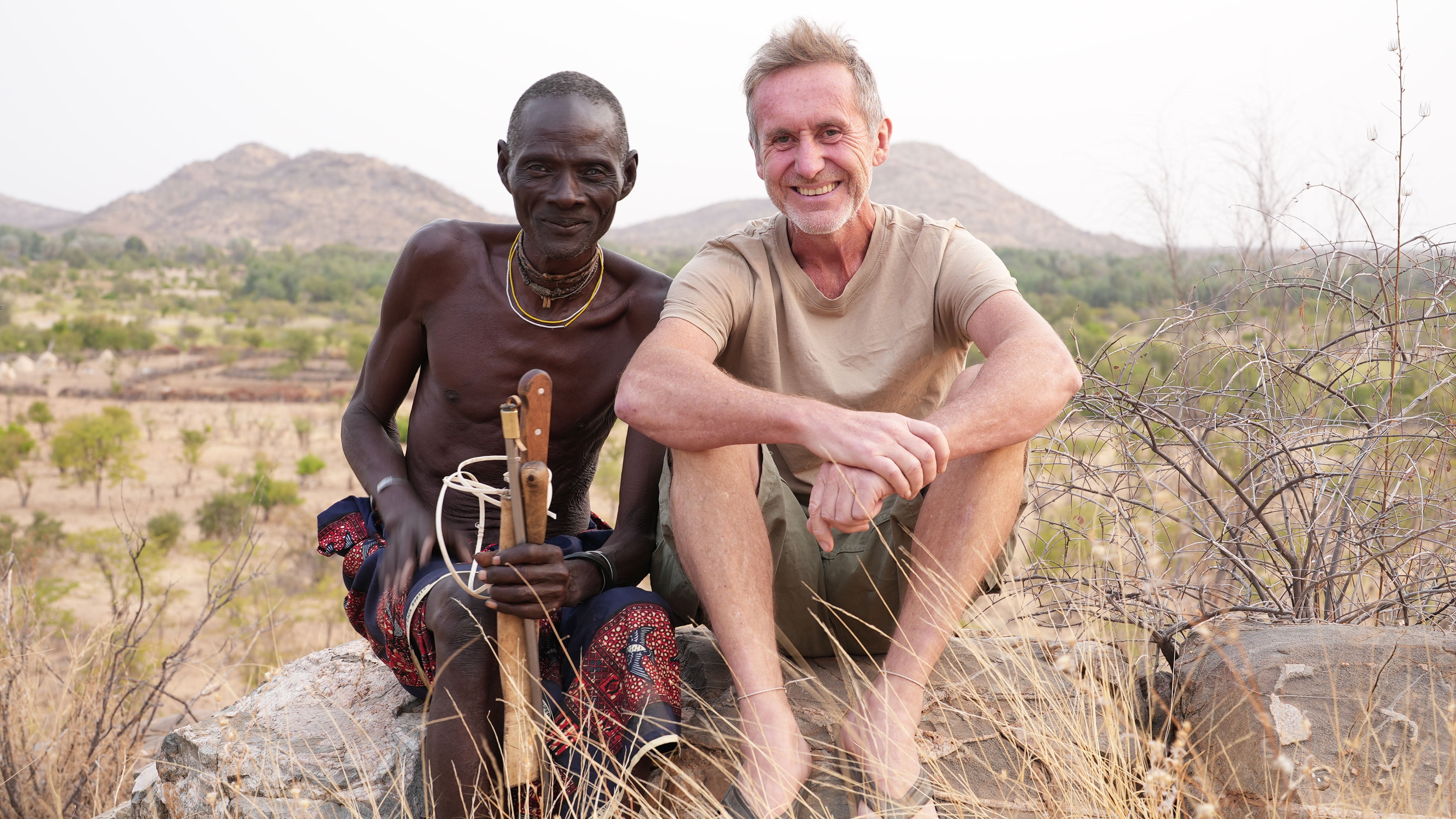
Bruce Parry, the adventurer, activist and former Royal Marine, became a household name in the early Noughties for his BBC TV series, Tribe, which first aired 20 years ago. He seemingly had no fear and, teamed with a relaxed demeanour and a willingness to immerse himself fully in remote indigenous communities around the world, he captured the imagination of his viewers.
In previous series, Parry has willingly joined in with rituals and traditions, often putting himself through extreme pain, including having his septum pierced with a large sago thorn (”by far the most painful thing”), consuming powerful psychedelic plant remedies, as well as sleeping on a floor made from cow dung and eating live insects on camera.
Parry has lived with the Adi people in Arunachal Pradesh, northeast India, the country’s hardest to reach state that not that long ago was closed to foreigners; the Kombai in West Papua, a group still associated with cannibalism and male witches; and the Penan community in Borneo's rainforest whose home is threatened by logging. For many, including myself, watching as a teenager, the programme ignited a lifelong interest in cultures around the world and the environment.
This new series promises to be just as exciting. It has three episodes, starting with the Waihama in Colombia, who believe they are deeply connected to the forest.
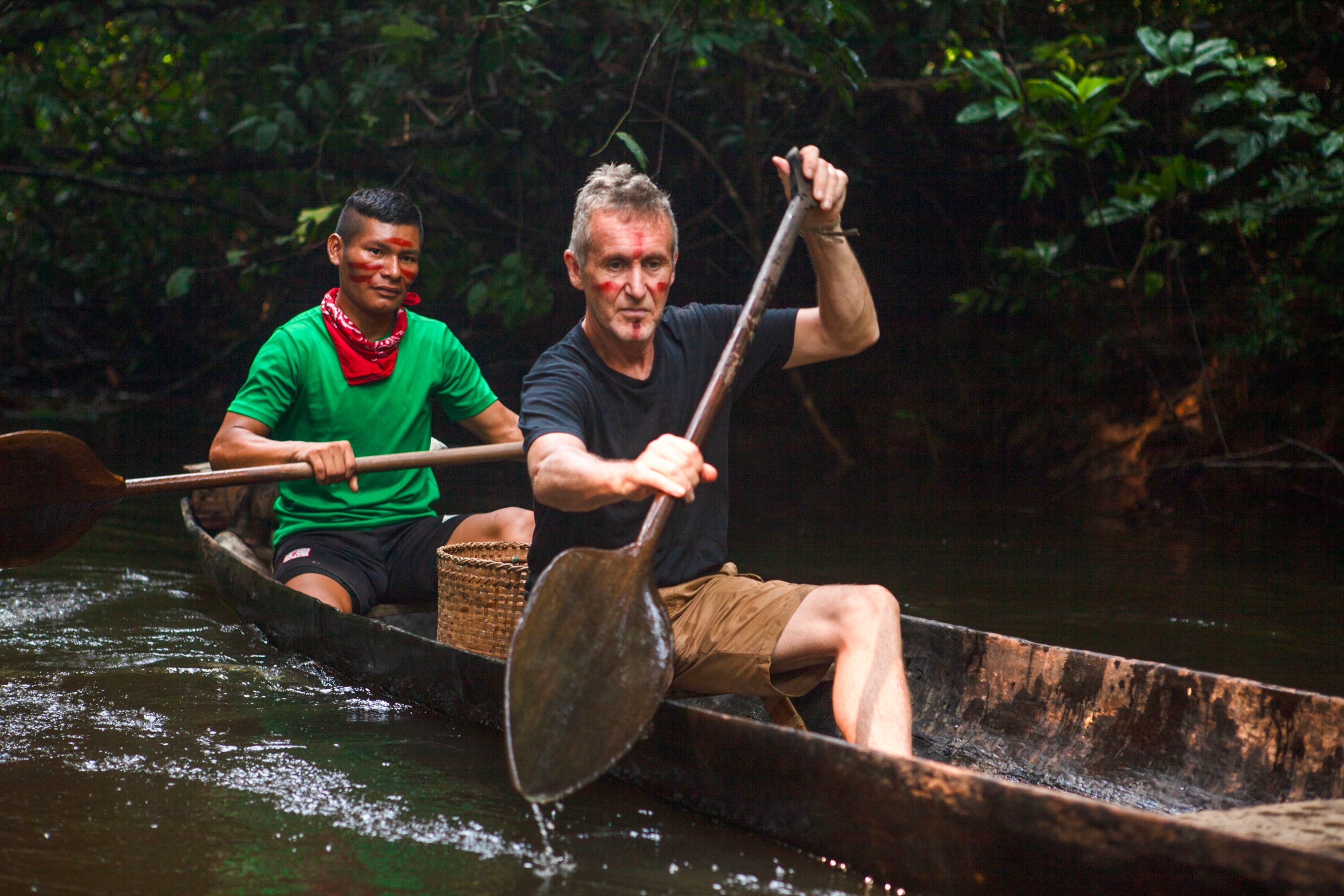
Read more: 9 of the best cities and towns to visit for a holiday in Colombia
Parry joins them in cleansing his body through induced projectile vomiting into a river after drinking a bright green liquid made from plants. He also snorts chillies and takes part in a lengthy ayahuasca ceremony in a bid to connect with forest spirits.
“I have become a believer in the plant medicines I have taken with indigenous peoples. They have changed my life beautifully and beyond measure.”
Parry says he was initially “terrified” of presenting the show, explaining, “I wasn’t a trained anthropologist, [I was] fearful of how I was going to be seen talking to the world about this very complex and important subject.”
Ultimately, the series was a success, and Parry felt very lucky to have taken up the mantle. After six years, three series, several spinoff series, and a Bafta award, Parry decided to take a break. While he continued to advocate for indigenous people, the break from TV lasted 10 years.
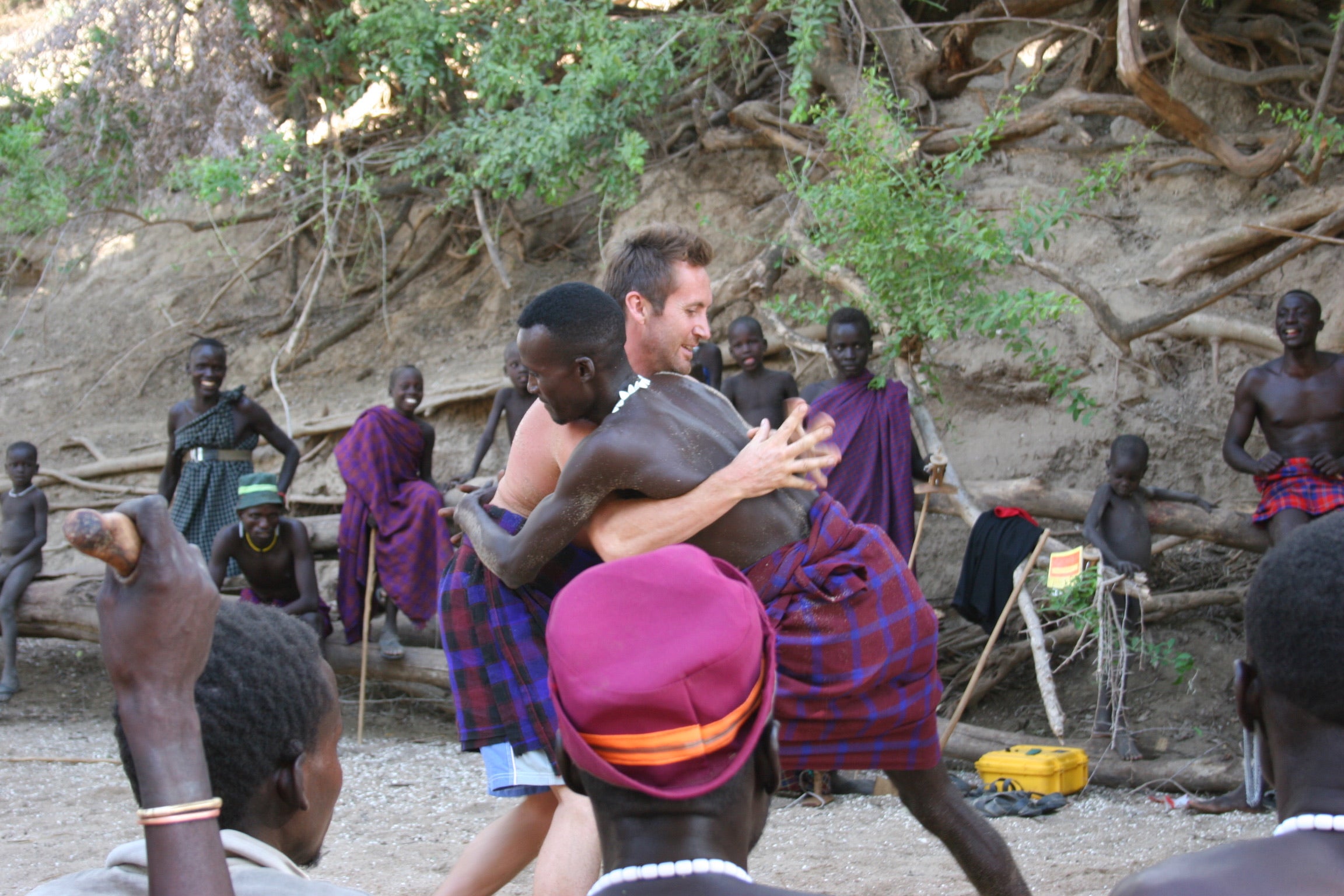
“I’d see the impact of [these things] on the planet and then return to a nation still debating climate change. I realised that you can raise lots of money, make a film and say whatever you want to say, but you’re only speaking to the people who want to hear it. I felt like a tidal wave was about to land on us… and I needed to act.”
Being confronted with the problems faced by remote groups, from the effects of globalisation and climate change to pollution from illegal cocaine production, has been tough for Parry to come to terms with, and he says: “I wouldn't mind if I didn’t travel again. That’s not my drive. I’m not there to make entertainment. I’m doing it because we need to learn from these people.”
Read more: Overtourism is threatening wildlife – here’s how to have a responsible holiday
The responsibility to make programmes ethically weighs heavily on his shoulders: “It’s true that I can and have had an impact, but it’s nothing compared to the miners, missionaries and traders. The extraction of resources is still the number one impacting factor on indigenous people,” he says. “It's the impact of our world on theirs [which results in] a loss of land and water. That hasn’t changed and, if anything, it’s accelerated.”
Parry has revisited some of the communities over the years, and is still in touch with almost half of them, but notes, “I met most of them before social media was a thing.”
He admits that much has changed over the past 20 years and is aware of his privileged position. “Things have changed for me and for the audience and the tribes I visit. We all have a greater understanding of sex and gender, and different understandings of colonialism and appropriation.”
In March this year, he returned to our screens, rebooting the series under a new name: Tribe with Bruce Parry. He is aware that some people may question why he needs to visit remote communities, where outsiders have never visited, let alone stayed the night, but maintains: “[On TV] I can speak to people in their homes, and that’s a powerful thing.”
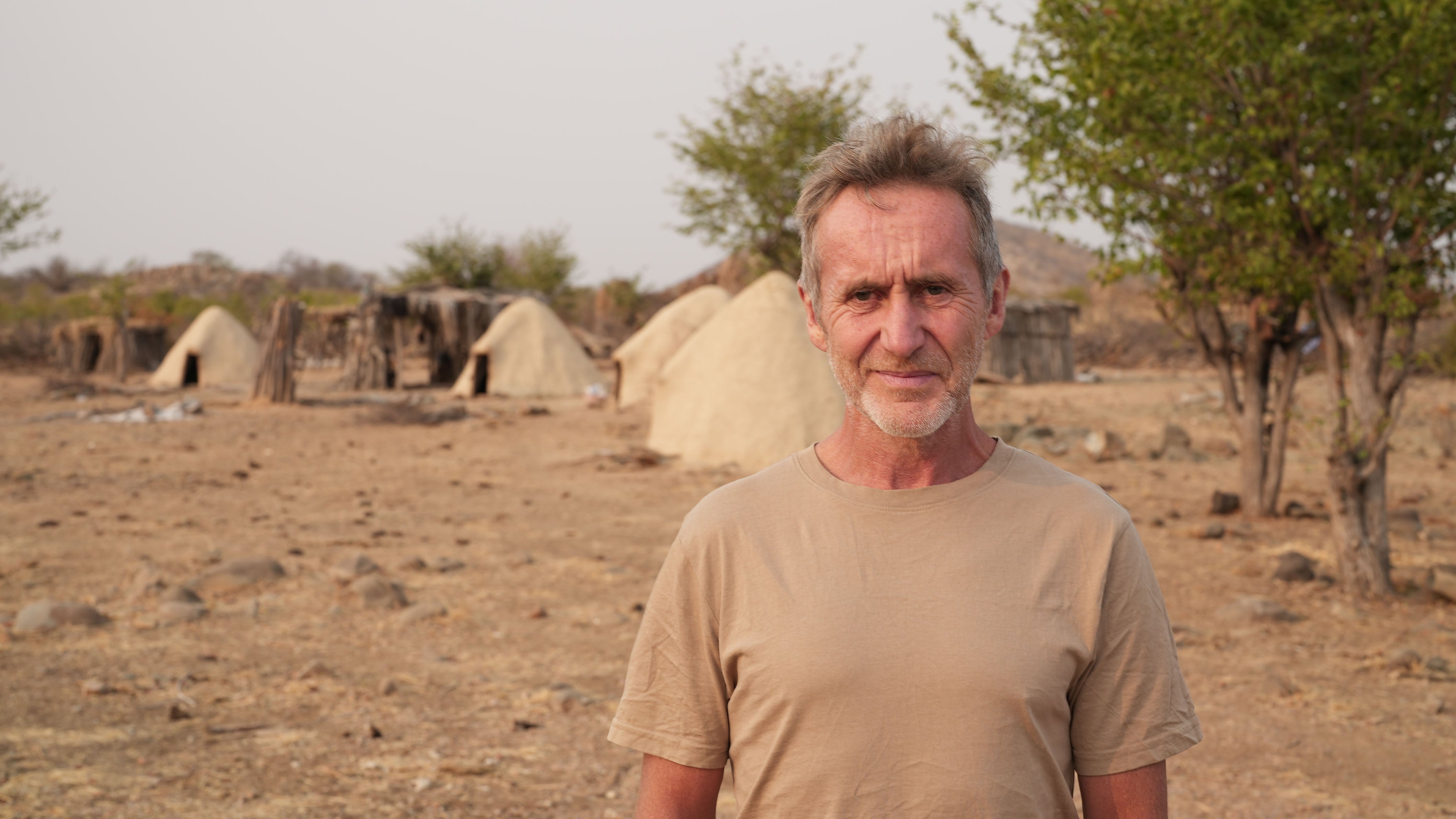
In the second episode of the new series, Parry stays with the almost entirely self-sufficient Mucabal group in the Namib Desert, southern Angola, one of the driest and most isolated communities that now has to dig daily for its water supply. This is the most controversial episode, with Parry being asked by Chief Keluie to sacrifice a goat by suffocation.
To the camera, Parry describes it as “the most gruesome thing I’ve ever done”, and is visibly upset by the experience. In another scene, a difficult-to-watch circumcision of a group of young boys takes place, and in another, a beauty ritual sees an 11-year-old girl’s bottom teeth knocked out with a stone. A gentle David Attenborough nature documentary, this is not.
The final episode covers the Marapu in Sumba, Indonesia, who live in a village among their buried ancestors. Parry is adamant he’s not much of a linguist, but after spending four months in Indonesia without a translator, he’s now able to hold a conversation with ease. It’s there that the community tells Parry they feel sorry for him when they learn he doesn’t know his ancestors or live near their remains. They say he’s like a nut without a shell.
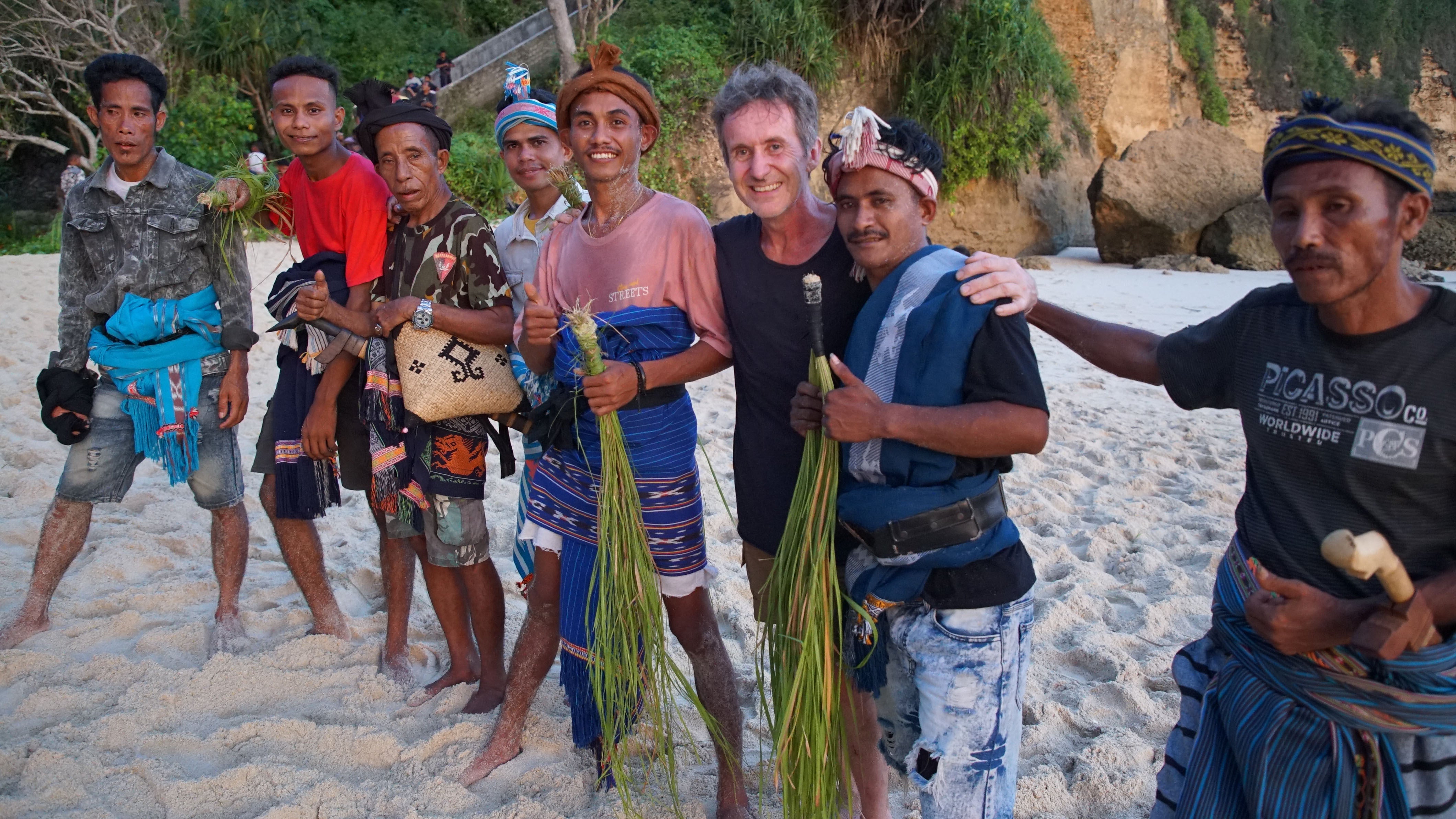
Despite making a career from travelling to some of the world’s most remote places to learn from indigenous communities, he doesn’t advocate for others to do the same. Instead, he says there’s plenty of “mind-blowing” places to visit closer to home in Wales or Scotland.
“I’m not trying to say you shouldn't go travelling,” he says. “I think travel is the university of life, it’s about how you travel. Go to places where things are different, speak to the people who live there and listen.”
You can watch all episodes of Tribe with Bruce Parry on BBC iPlayer now.
Read more: How to plan the perfect holiday around one of the world’s greatest wildlife spectacles




Join our commenting forum
Join thought-provoking conversations, follow other Independent readers and see their replies
Comments